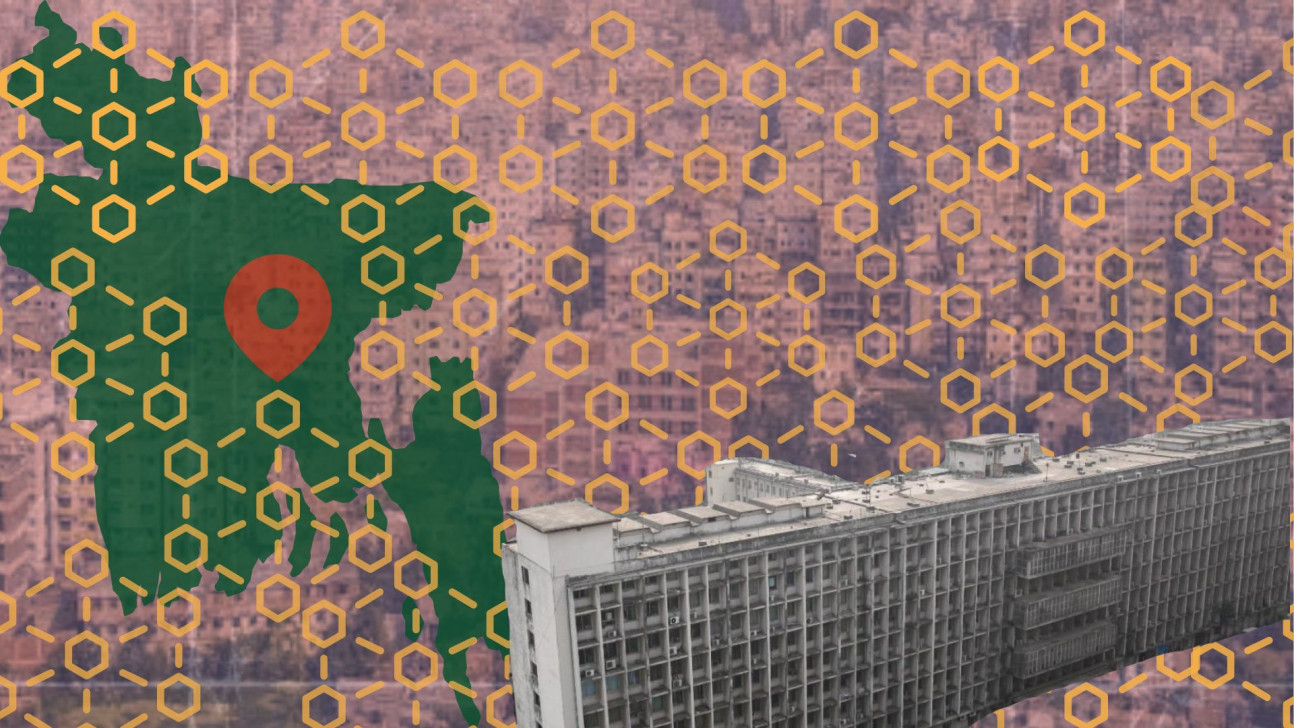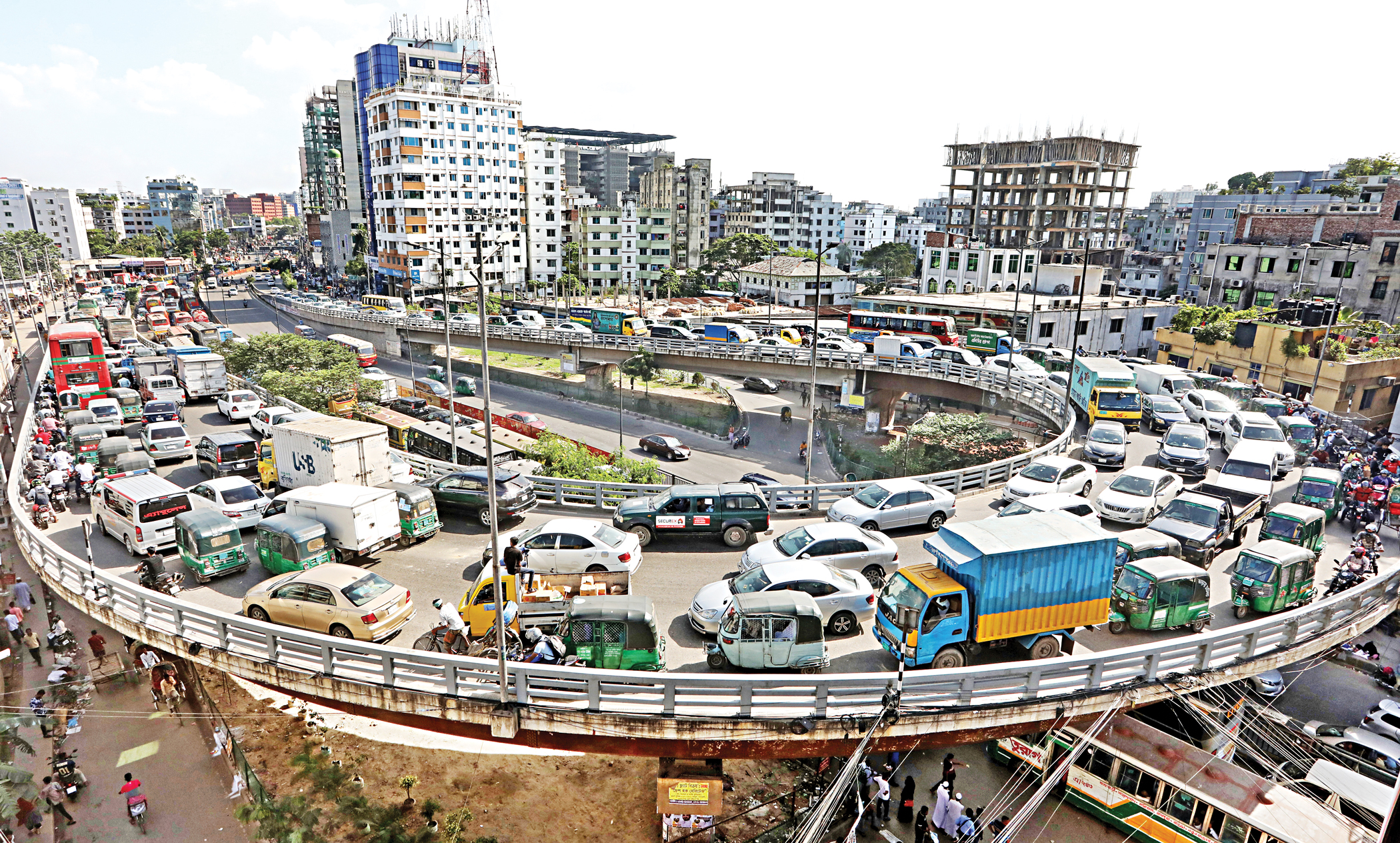Can participatory budgeting work in Dhaka?

Democracy in Bangladesh often feels like a ritual performed every few years at the ballot box. Citizens queue to cast votes, political parties campaign fiercely, and once the ballots are counted, the machinery of governance continues at a distance. For most Dhaka residents, the inner workings of city governance, primarily how funds are allocated, remain hidden. The streets are paved, drains are dug, contracts are awarded, yet very few citizens know how or why these priorities were chosen. This distance between taxpayers and decision-makers erodes trust, weakens accountability, and fuels a culture of cynicism.
But democracy can be more than the right to vote every five years. Across the world, a new practice is reshaping how cities make decisions: participatory budgeting (PB). The idea is simple yet radical: ordinary citizens directly deliberate and decide how portions of a city's budget are spent. What began as an experiment in Brazil's Porto Alegre in 1989 has since spread to more than 7,000 cities worldwide, giving people a real say in projects—ranging from clean water systems to playgrounds. In Porto Alegre, slum residents gained paved roads, schools, and sanitation because they had a voice in budget allocation.
In Bangladesh, too, at the union parishad level, NGOs and international agencies have supported "open budget sessions" where villagers could hear about allocations and suggest priorities. The United Nations has documented several of these grassroots experiments, noting that they encourage dialogue and raise awareness. Yet in practice, these sessions often fall short of genuine power-sharing: the budget is still prepared behind closed doors, with limited capacity for citizens to redirect spending.
Nowhere is the gap more evident than in Dhaka. A 2020 study of Dhaka South City Corporation revealed that 96 percent of respondents were unaware of the corporation's budget, and only four percent were aware of the corporation's development projects. Officials often declined to provide information proactively, which reinforces the fact that the city's finances are a mystery to ordinary taxpayers. If most residents of a megacity remain unaware of how public money is spent, can we truly call this an inclusive democracy?
Dhaka is uniquely in need of participatory budgeting because its governance is very fragmented. Authority is divided between two city corporations, Rajuk, ministries, and utility boards, creating overlaps and gaps that leave citizens with little clarity on who is responsible for what. In such a system, giving residents a direct role in deciding even a share of local budgets could help clarify the process and make governance feel more tangible, visible, and accountable.
Participatory budgeting in Dhaka could start modestly. Imagine if each ward set aside just one to two percent of its annual development funds for citizen decision. Residents could propose projects, deliberate in local meetings, and cast their votes. In one neighbourhood, the priority might be drainage; in another, safe pedestrian crossings; in another, community clinics. The process could be supported through hybrid mechanisms: digital platforms and SMS voting for younger and more connected residents, combined with ward sabha (public assemblies) for those without internet access.
However, a significant risk can be elite capture, where wealthier or better-organised groups may hijack the process to secure benefits for themselves. This problem has been noted in global studies, and recent research suggests safeguards, such as ranked voting systems or point-based allocations to ensure more equitable outcomes. In Dhaka, such mechanisms could be coupled with geographic fairness rules, ensuring that each ward or cluster receives a minimum allocation.
Another obstacle is bureaucratic resistance. City officials and councillors may see participatory budgeting as a threat to their discretion, or as yet another burden. Overcoming this requires both political will and legal backing. The city corporations would need to institutionalise PB in their regulations, publish transparent dashboards showing which projects were voted for and how much was allocated, and invite citizens to track whether implementation matches promises. If the Governance Innovation Unit, which already promotes public sector innovation, were to support this experiment, it could lend crucial legitimacy.
Participation must also be inclusive. Dhaka's poor women and marginalised groups are often excluded from formal politics. Yet, international practice shows that participatory budgeting can empower precisely those groups if designed with sensitivity. Gender-responsive budgeting is one pathway to ensuring that issues like sanitation, lighting, and childcare, which disproportionately affect women, are prioritised. Rotating facilitators, translation for low-literacy participants, and quotas for representation can all help broaden the range of voices that get heard.
If such a pilot were launched in Dhaka, say, in two wards of each city corporation, the results could be transformative. Citizens would see that their taxes actually translated into visible outcomes they chose. Authorities would face more substantial incentives to deliver, as projects would be directly linked to citizen votes. Over time, participatory budgeting could become embedded in city culture, just as open budget sessions have slowly taken root at the village level. The efficiency of local government, often questioned in Bangladesh, could be revamped through this practice of shared power.
The larger point is that democracy cannot remain a passive spectator sport. Casting a ballot is essential, but it is not enough to create trust in institutions. What sustains democracy is the everyday experience of being heard and seeing one's choices reflected in tangible improvements. For Dhaka, with more than 20 million residents and countless infrastructural challenges, the stakes are high.
The shift from vote to voice will not happen overnight. It will demand experimentation, safeguards, and perhaps some failures. However, dismissing the idea is to resign ourselves to a city where budgets are drawn up in secrecy and citizens remain perpetually in the dark. Participatory budgeting offers a chance, slight at first but potentially profound, for Dhaka to show that democracy can be more than symbolic.
When residents of this city can point to a new drainage system, a repaired footpath, or a community library and say, "We chose this," democracy will no longer be only about elections. It will be about everyday voice, and everyday power. That is a vision worth striving for.
Shaikh Afnan Birahim is a postgraduate student of computing science at the University of Glasgow, UK.
Views expressed in this article are the author's own.
Follow The Daily Star Opinion on Facebook for the latest opinions, commentaries and analyses by experts and professionals. To contribute your article or letter to The Daily Star Opinion, see our guidelines for submission.




 For all latest news, follow The Daily Star's Google News channel.
For all latest news, follow The Daily Star's Google News channel. 

Comments